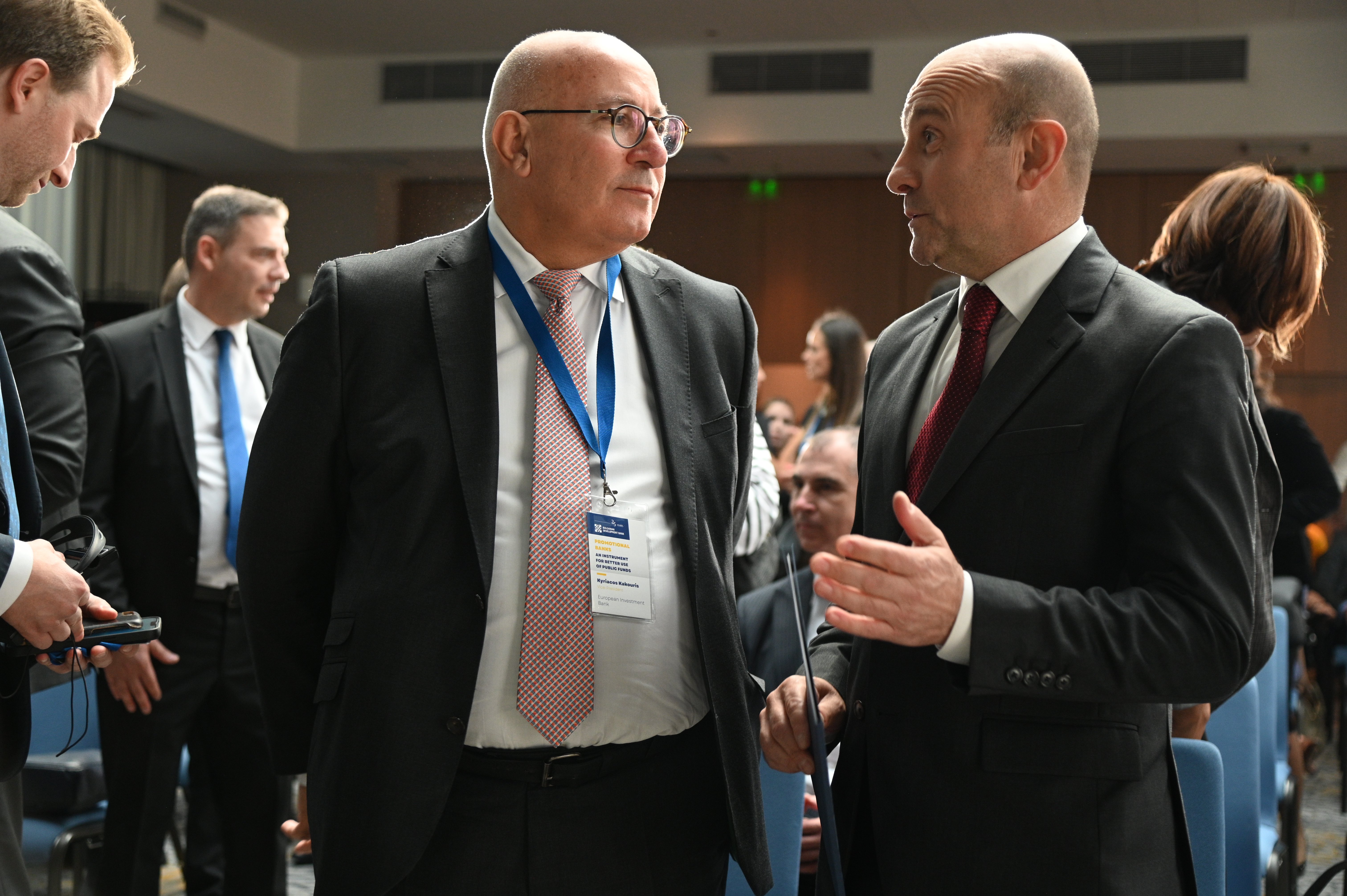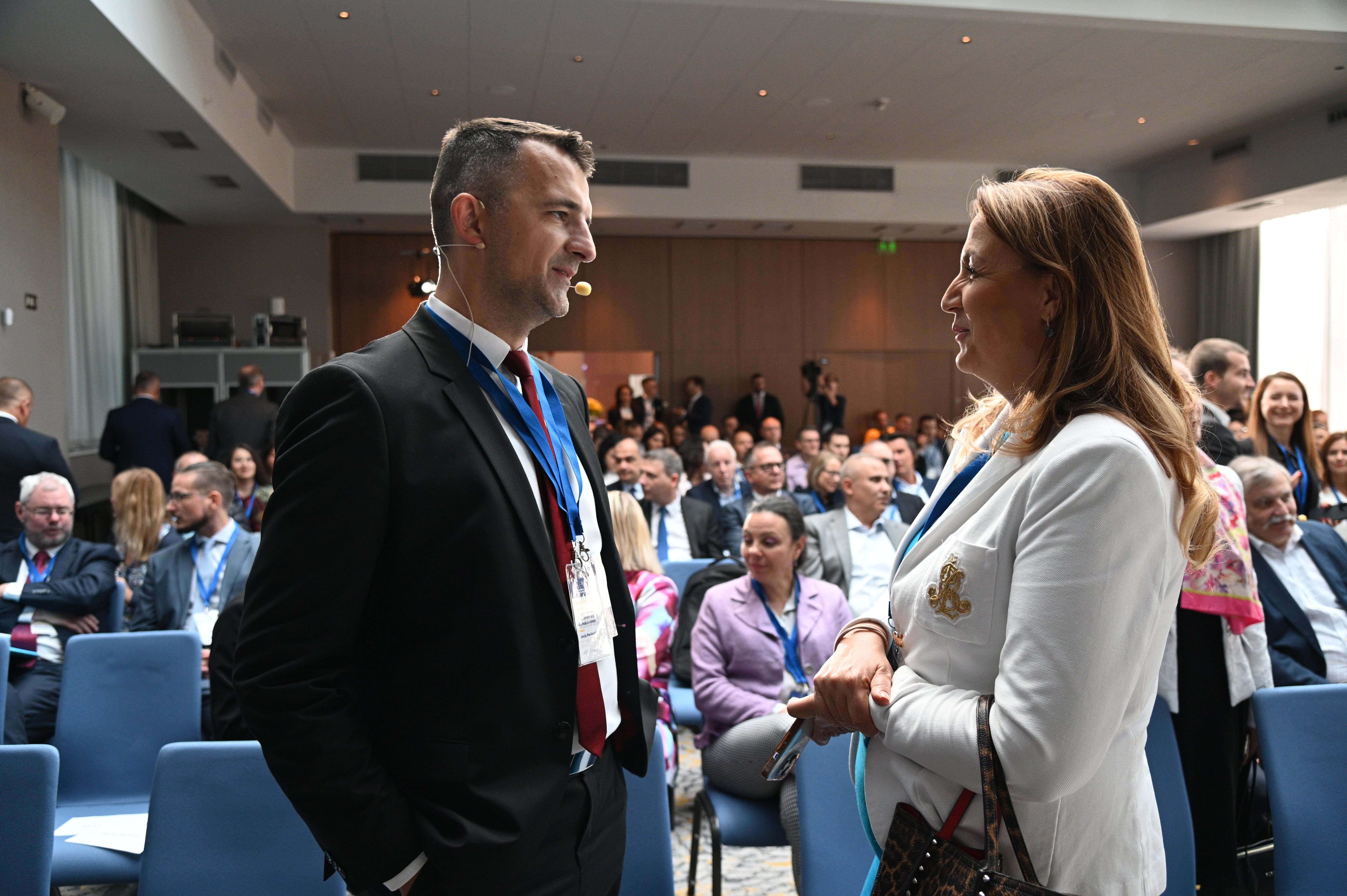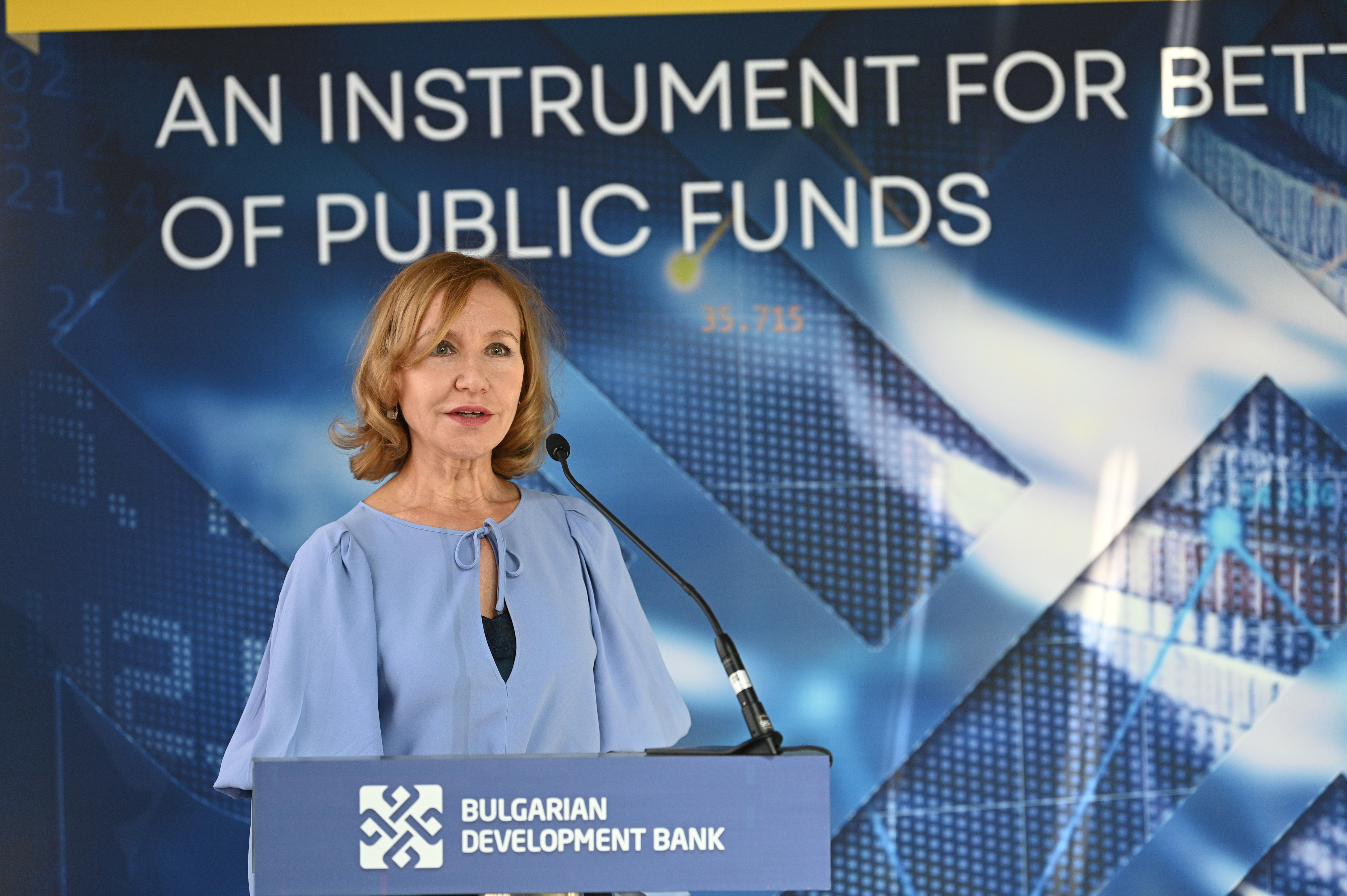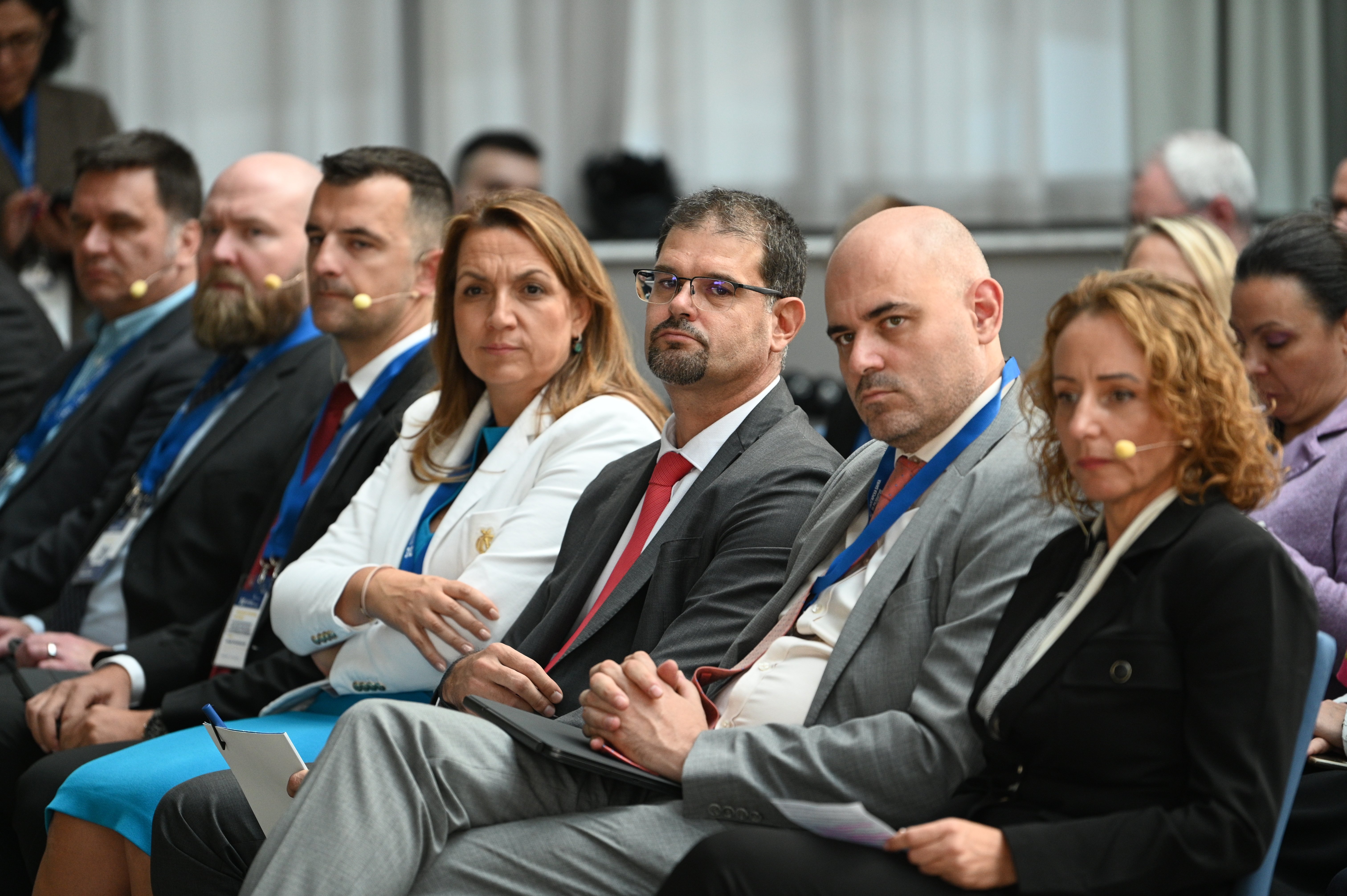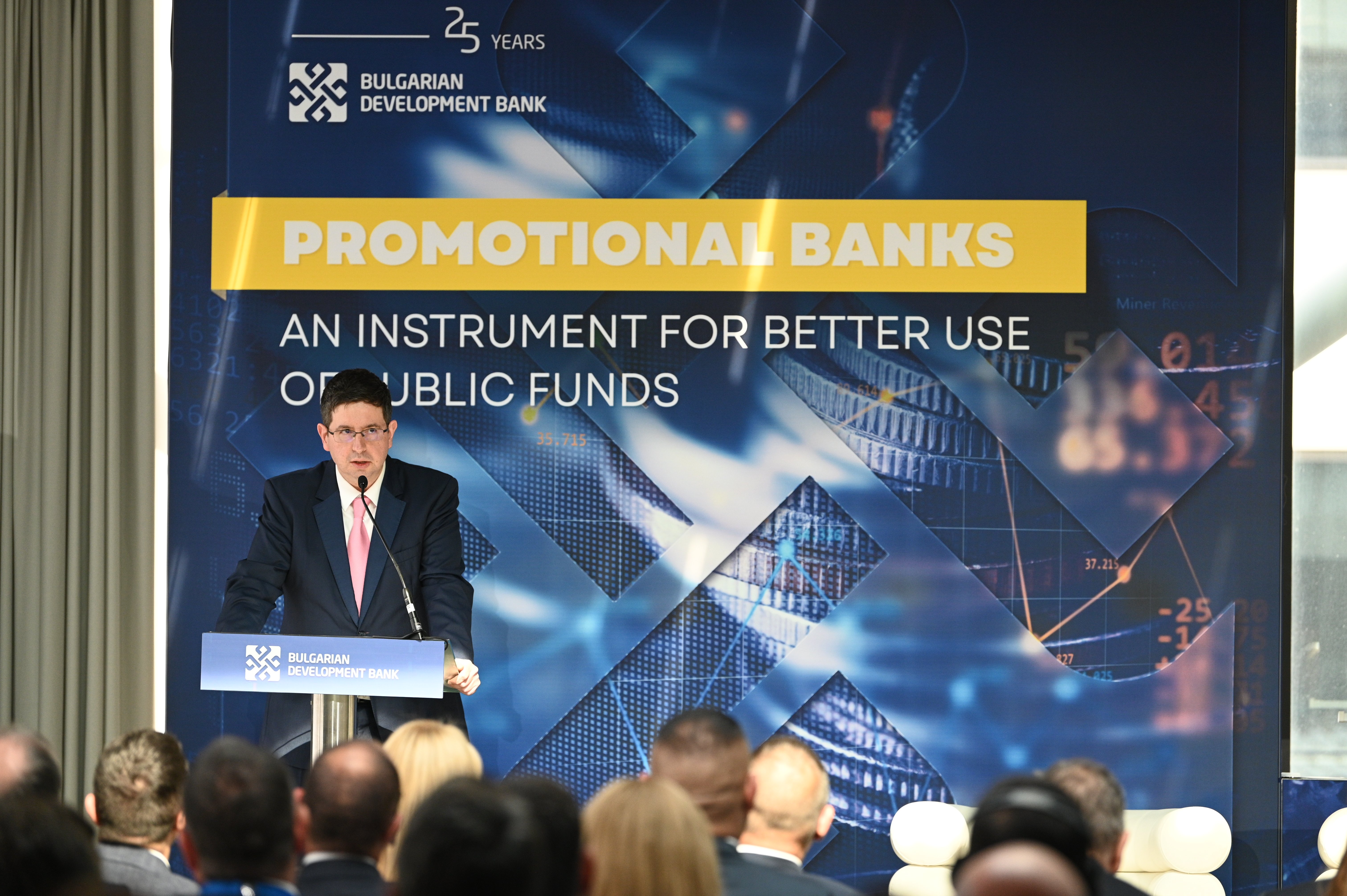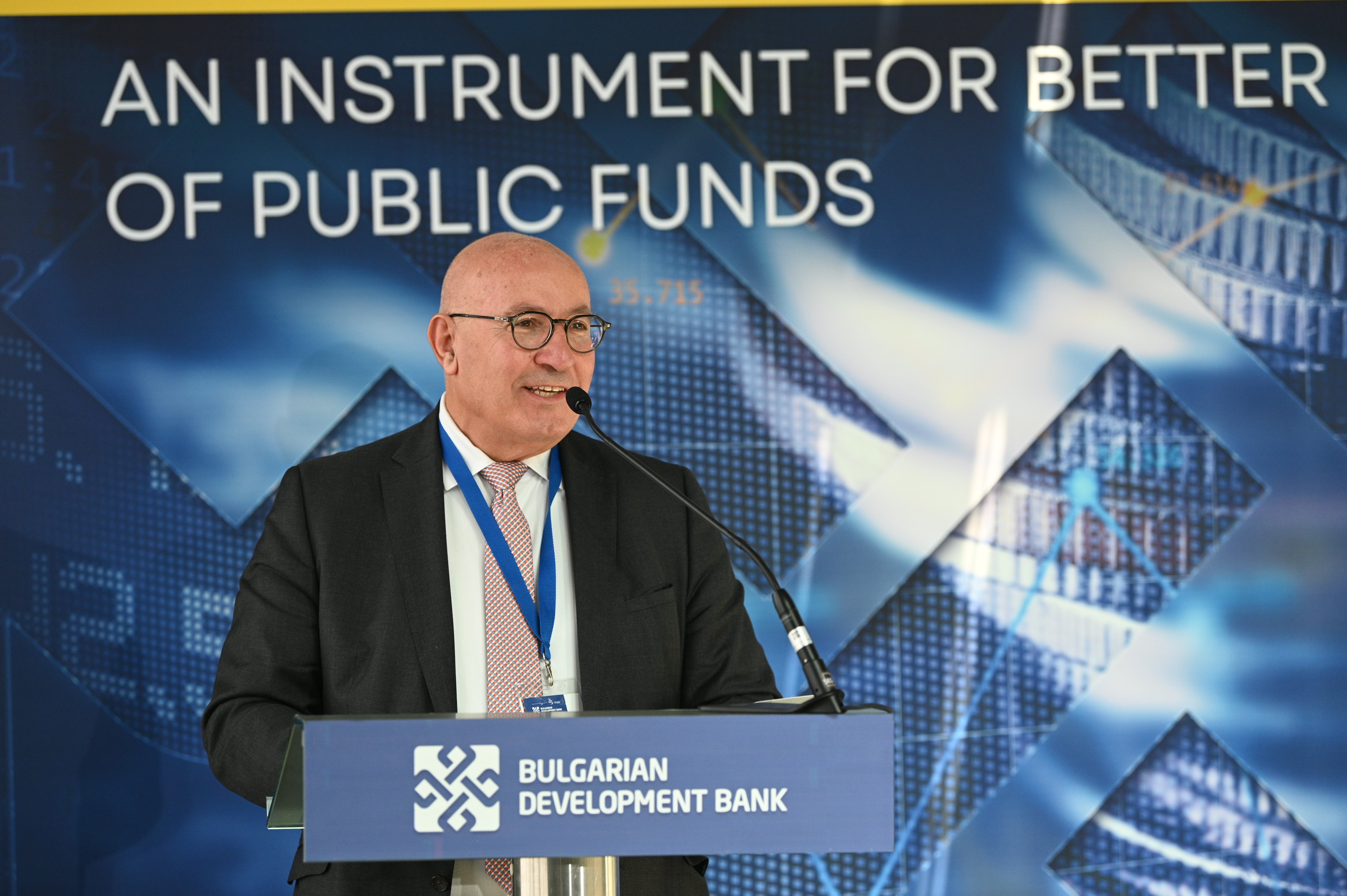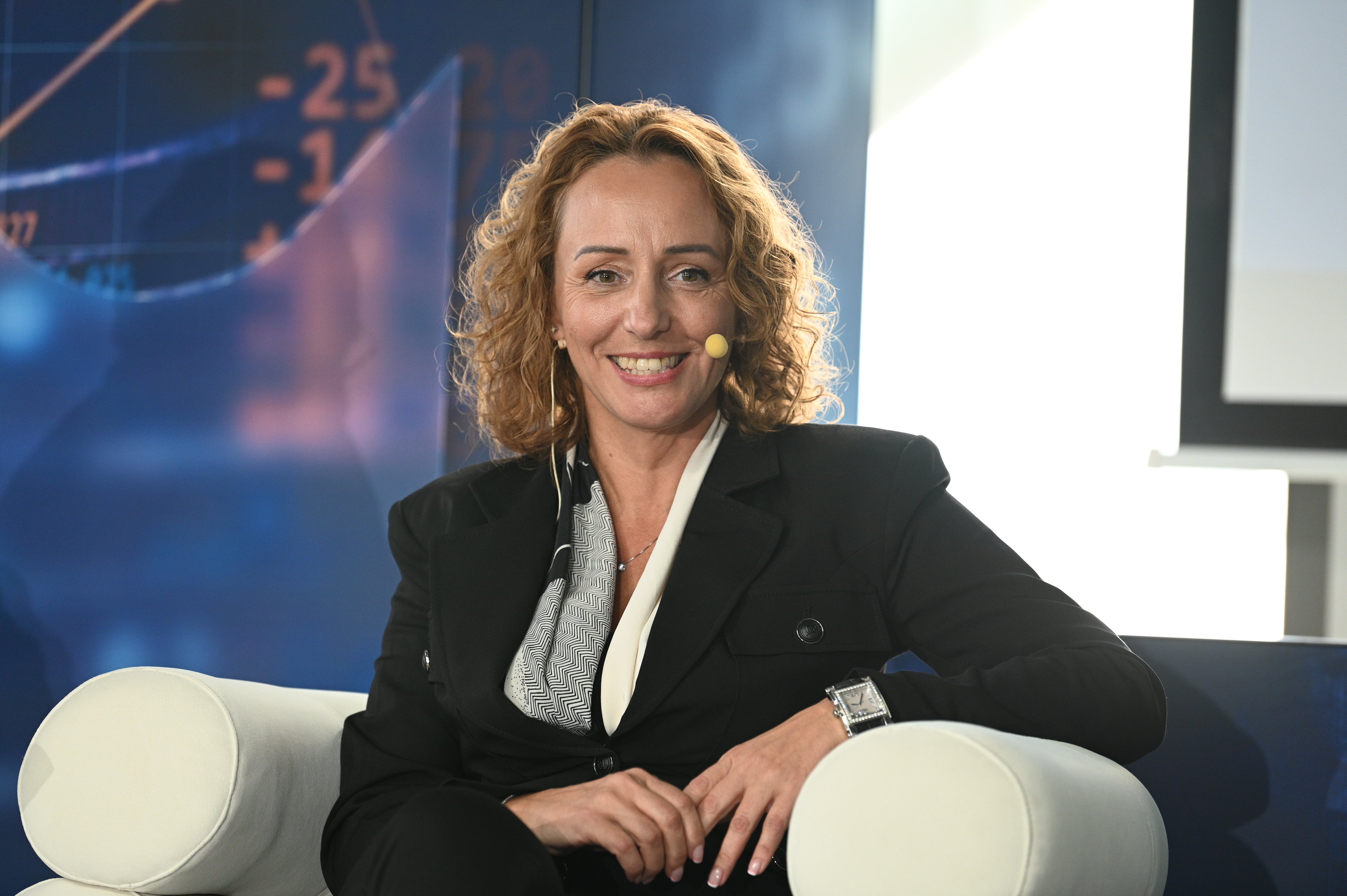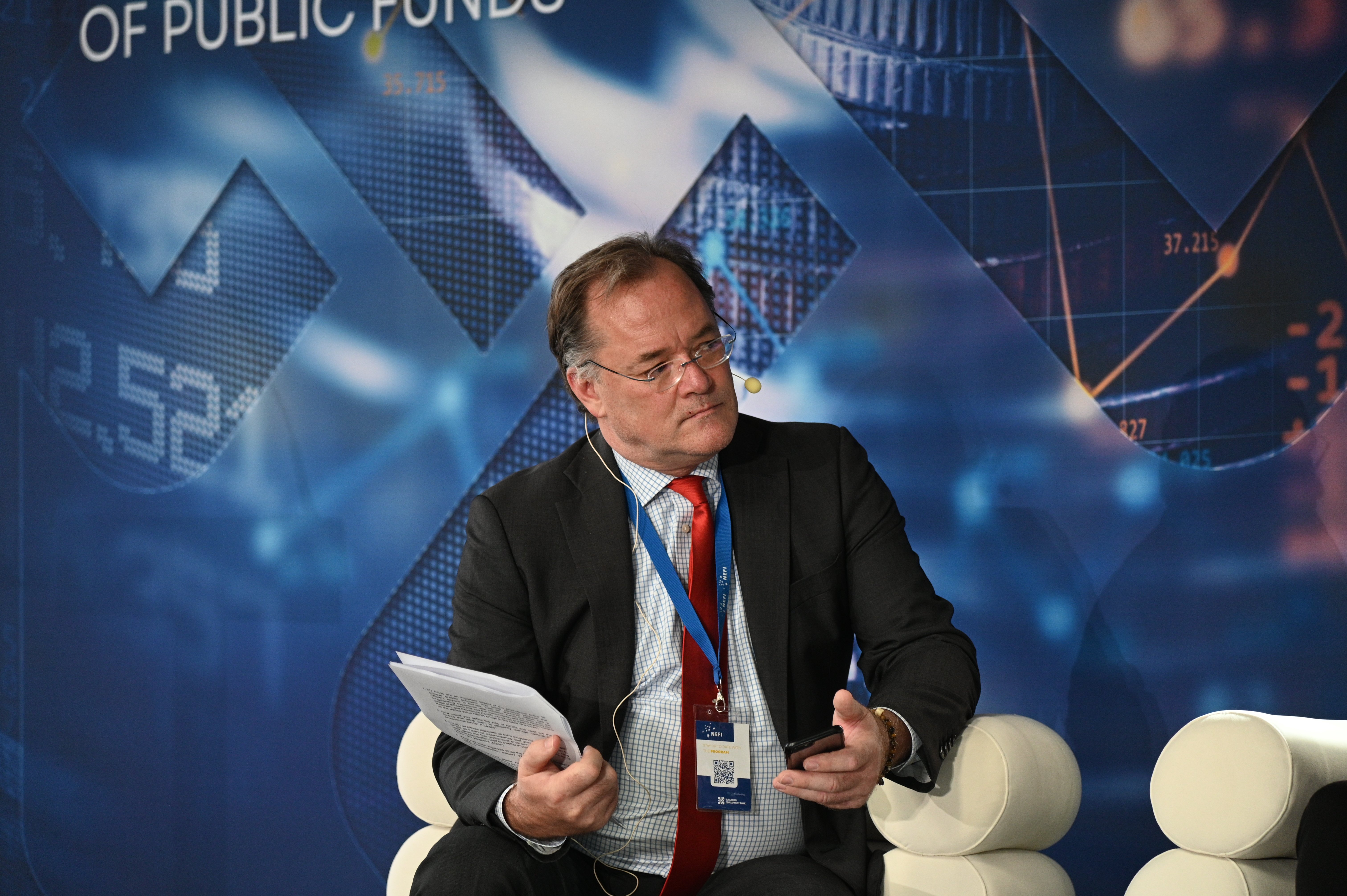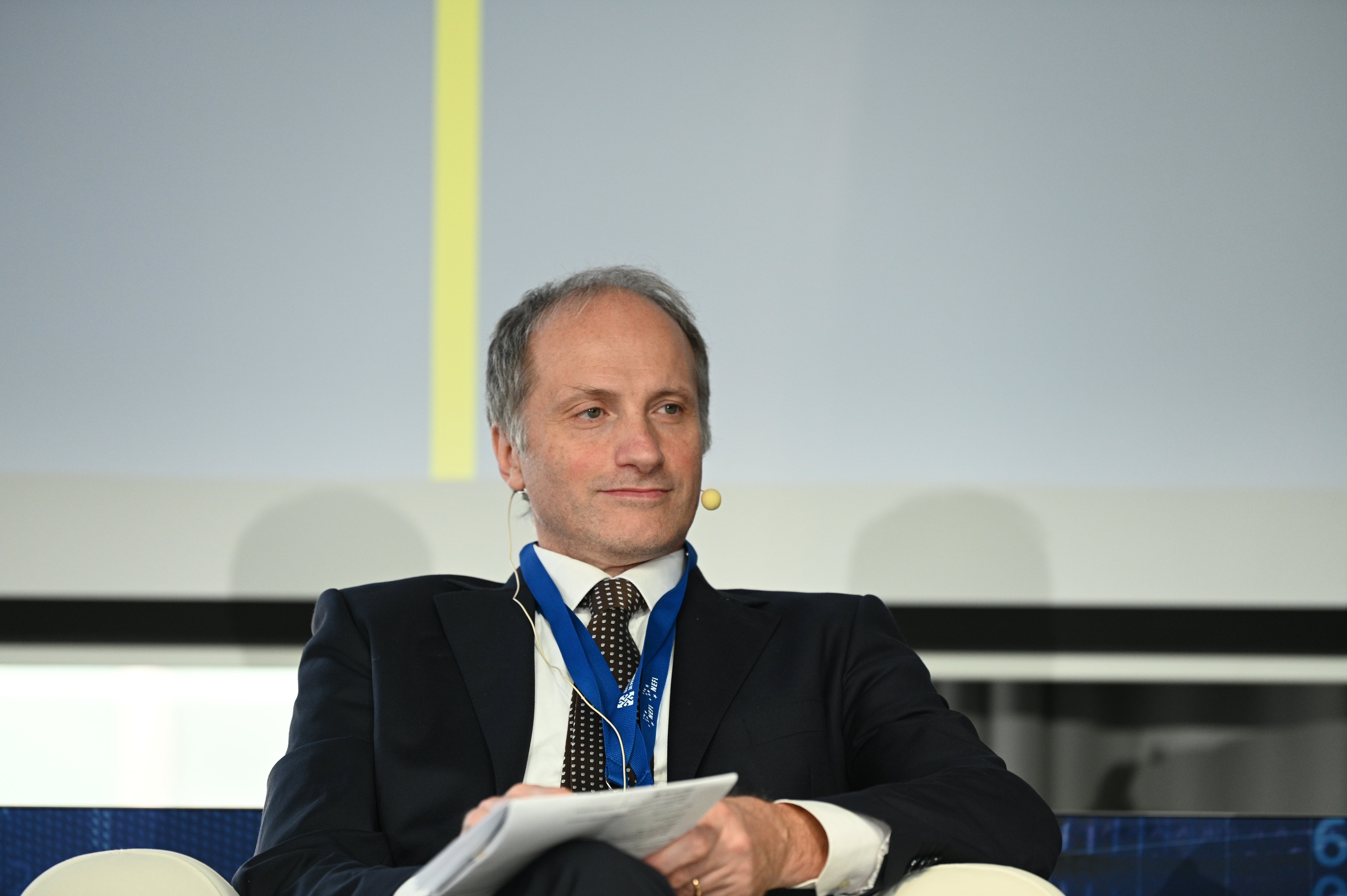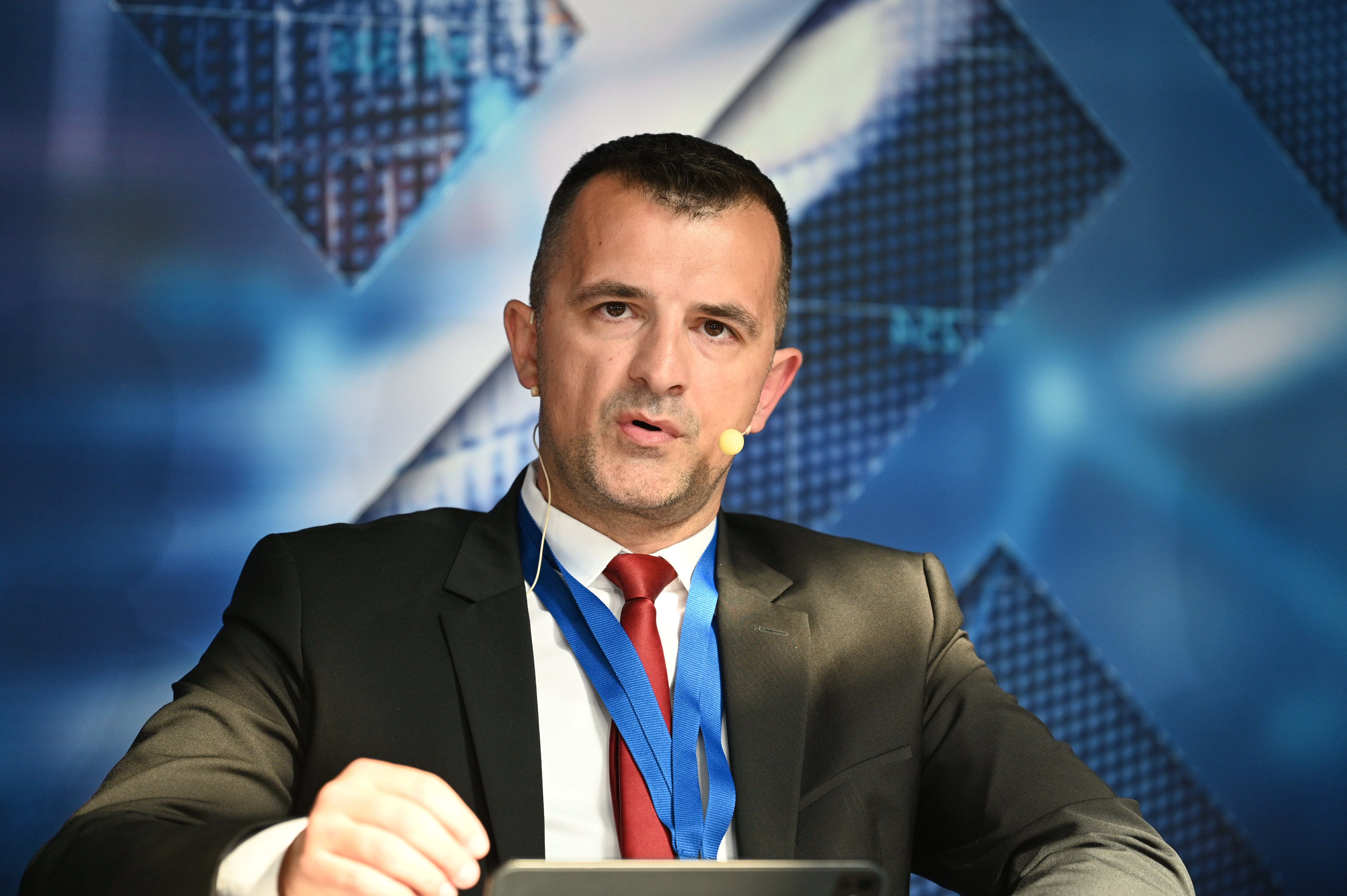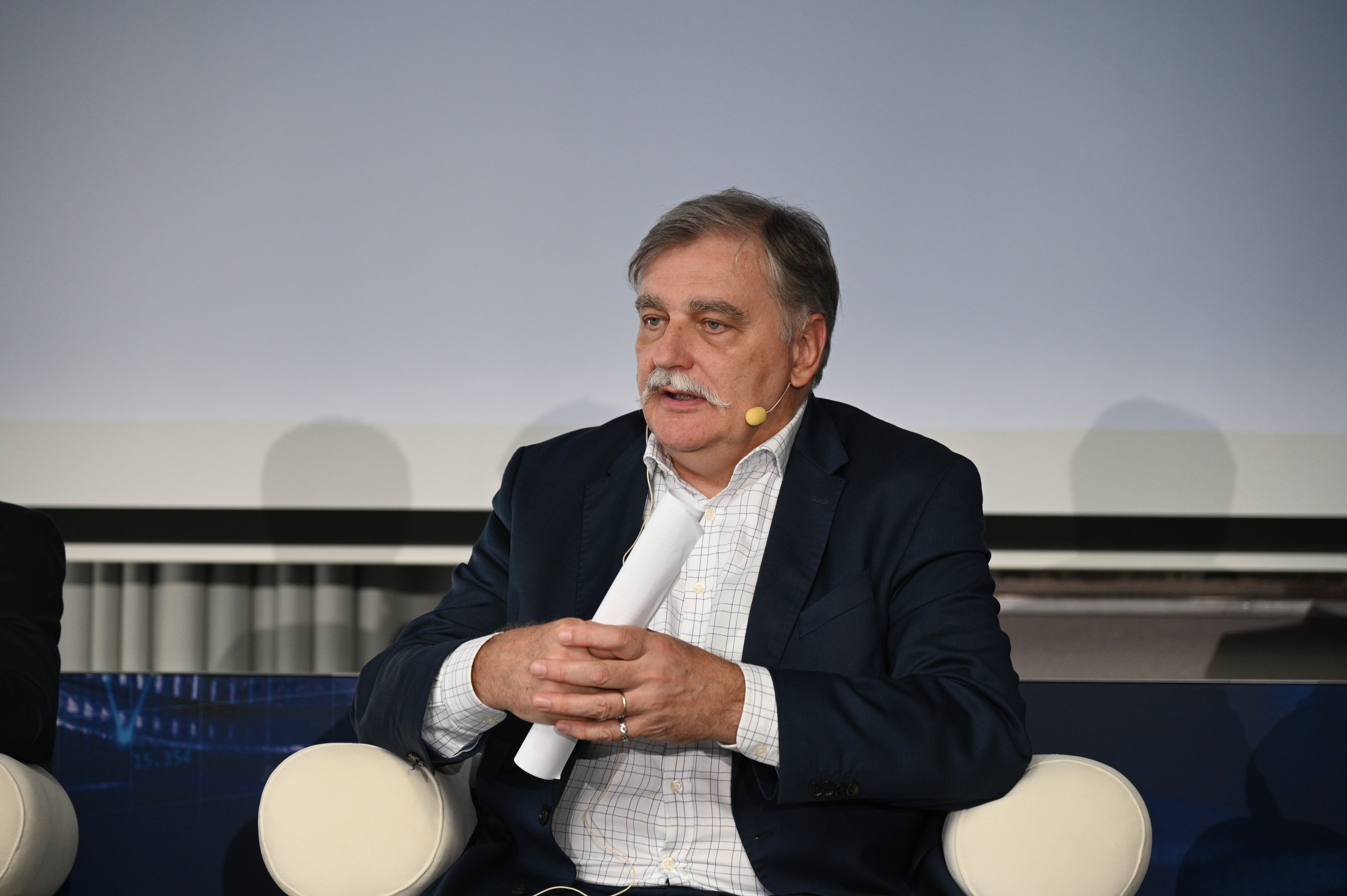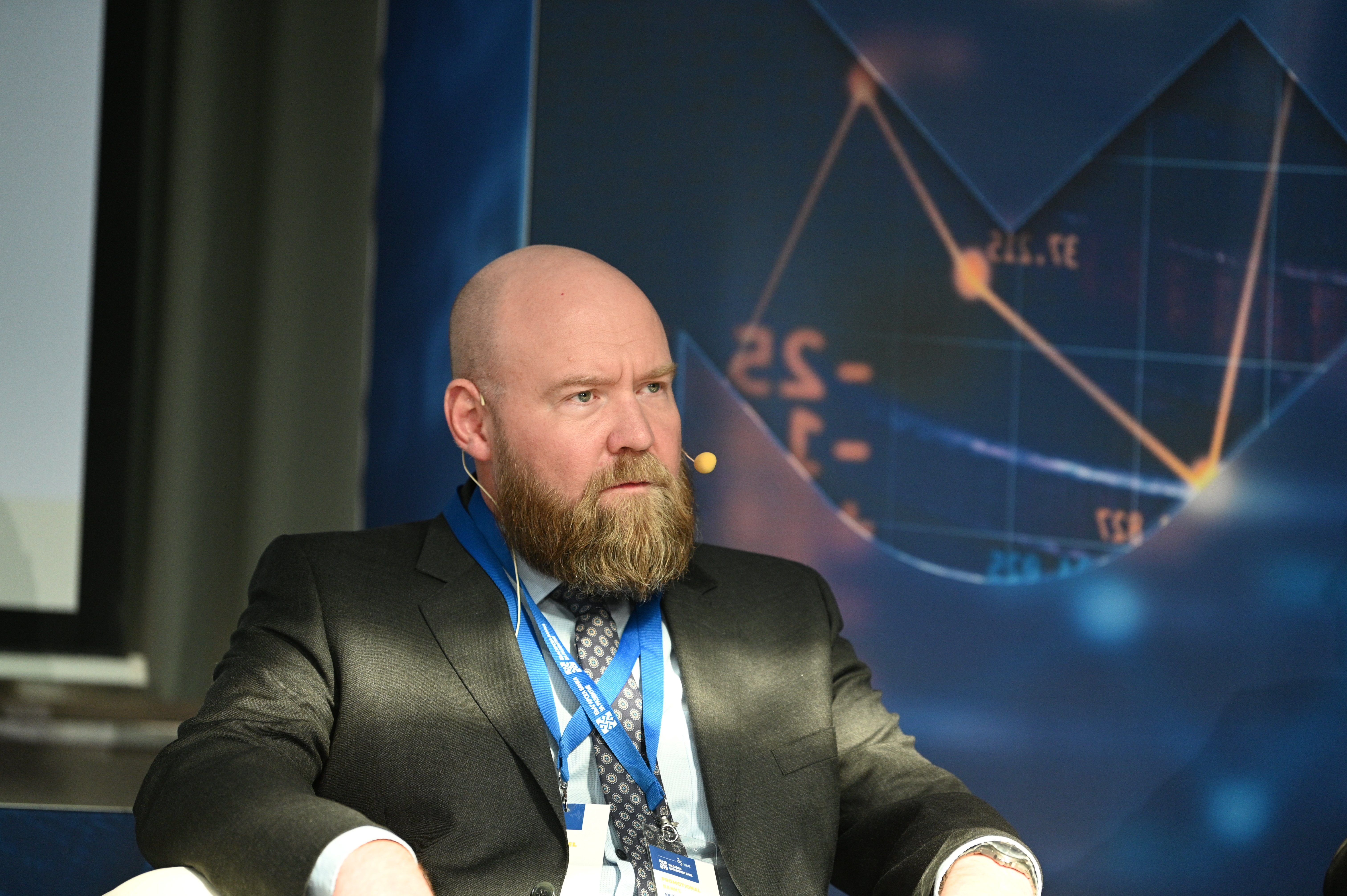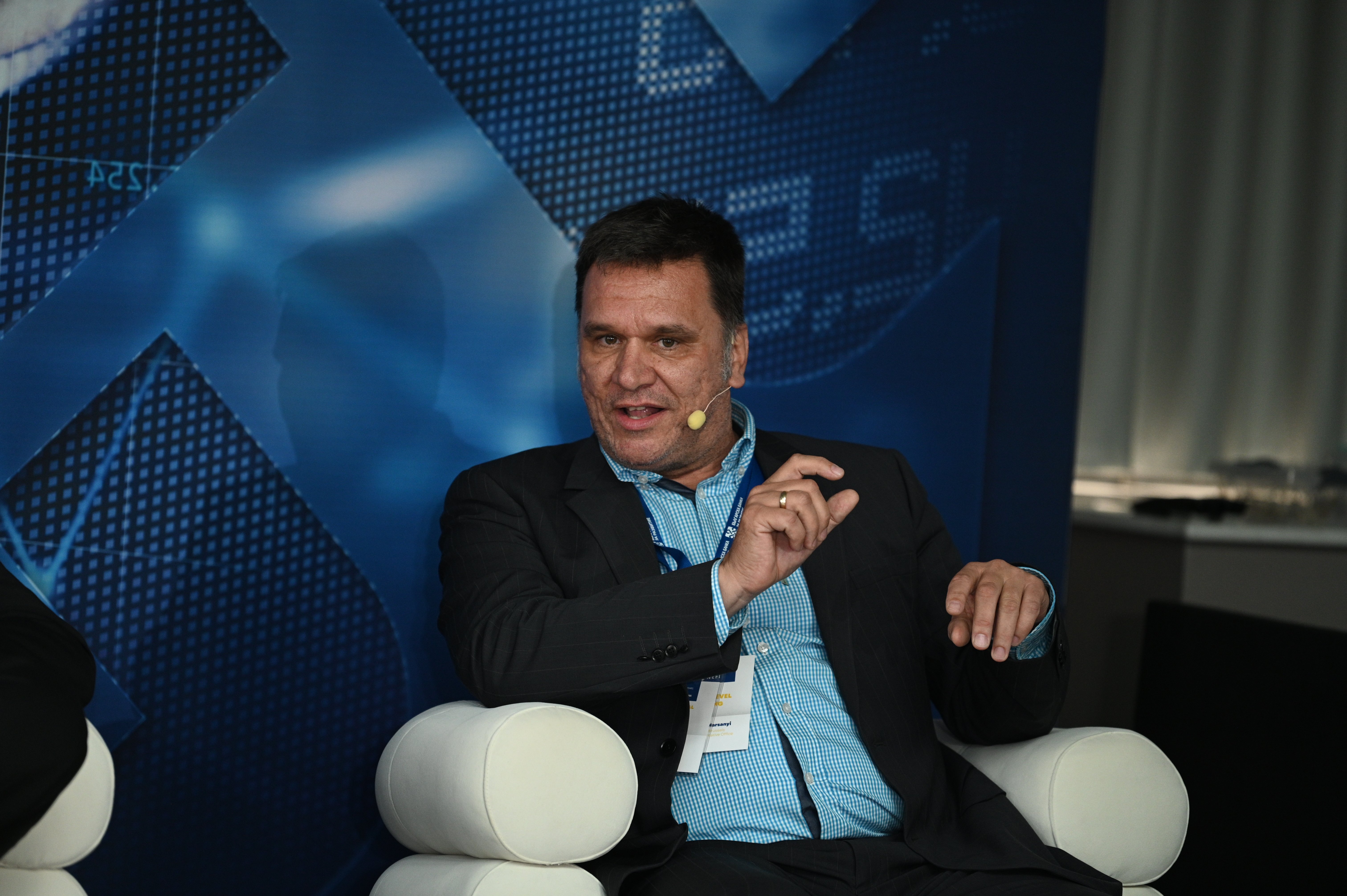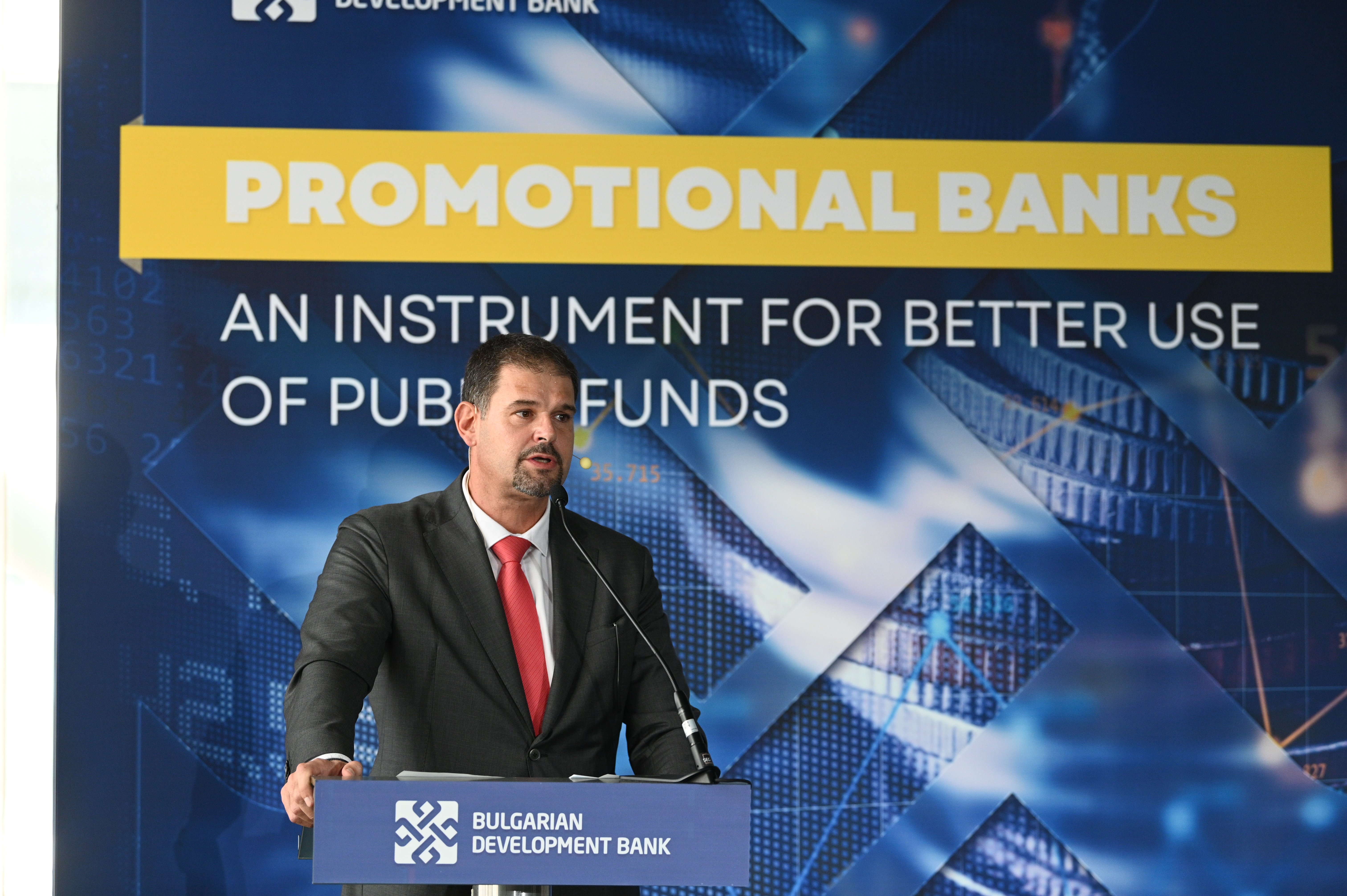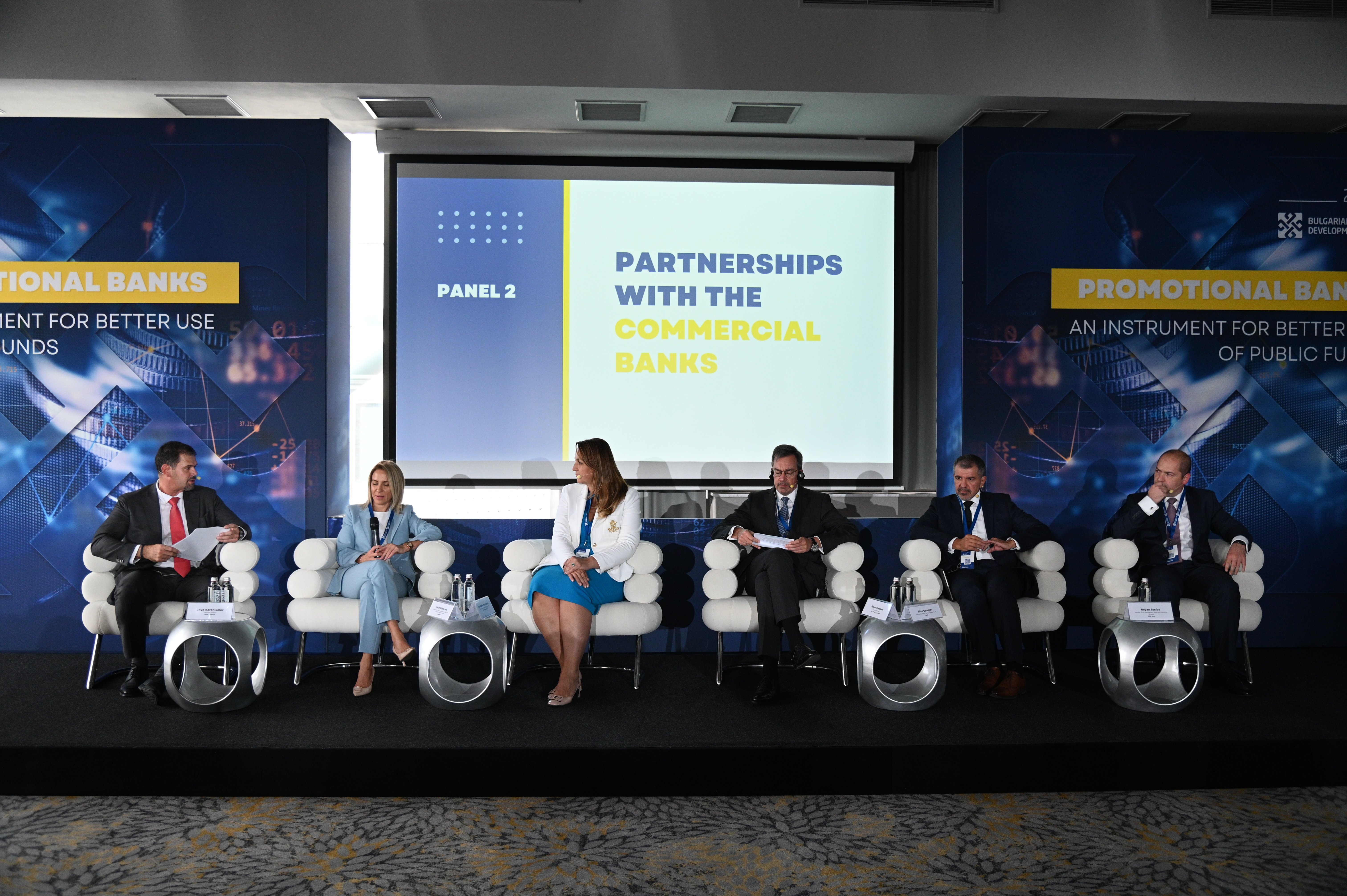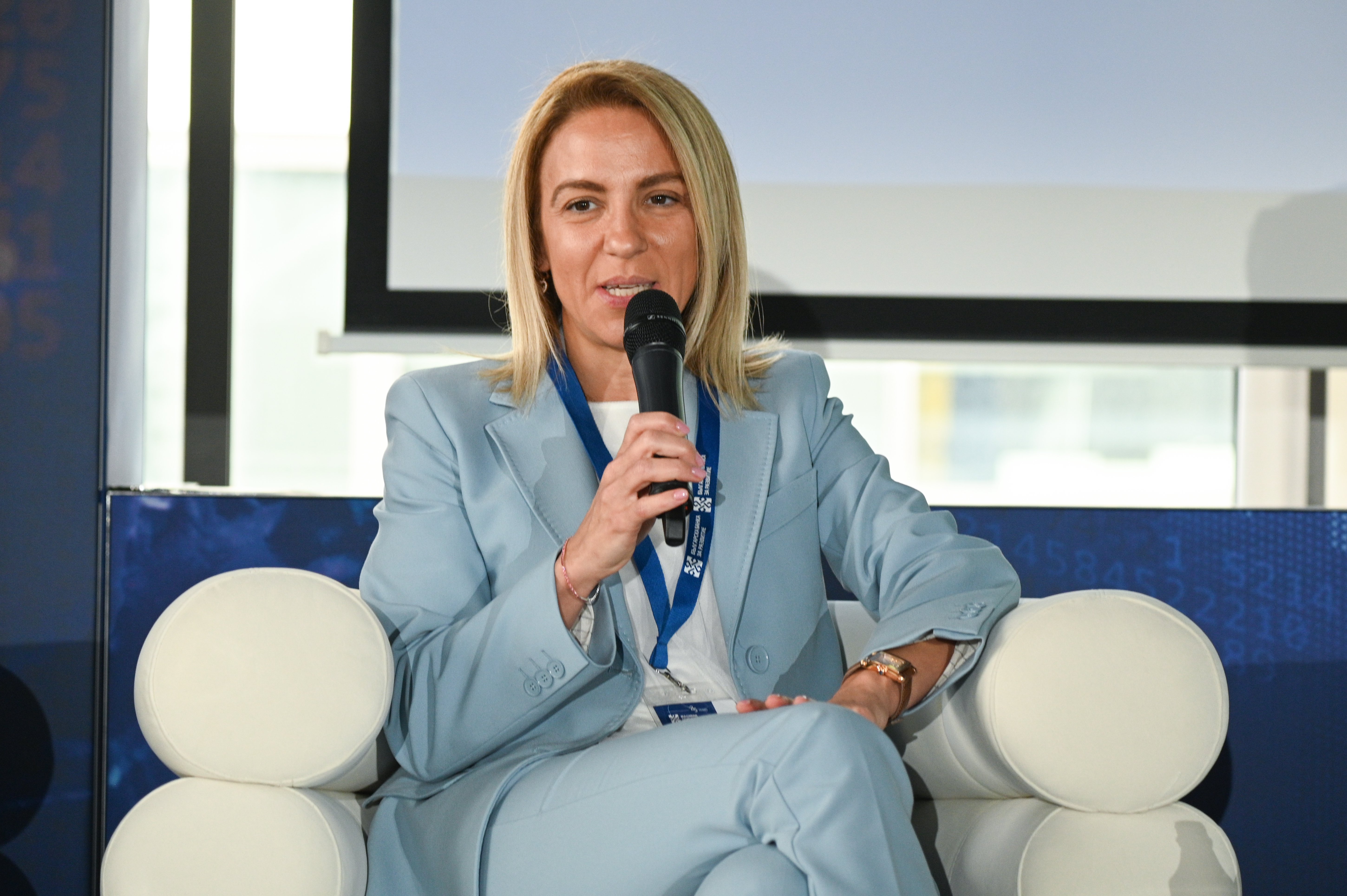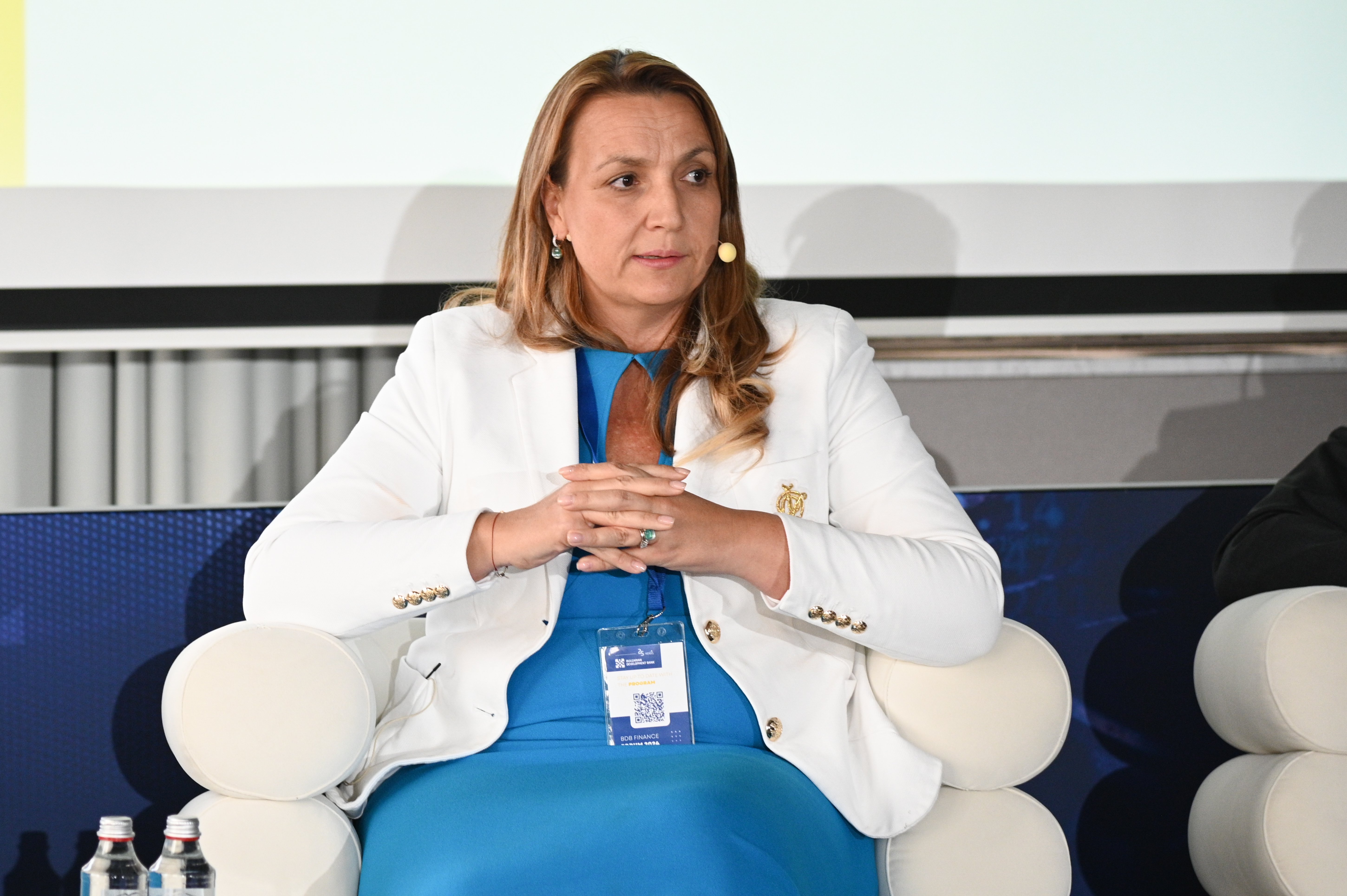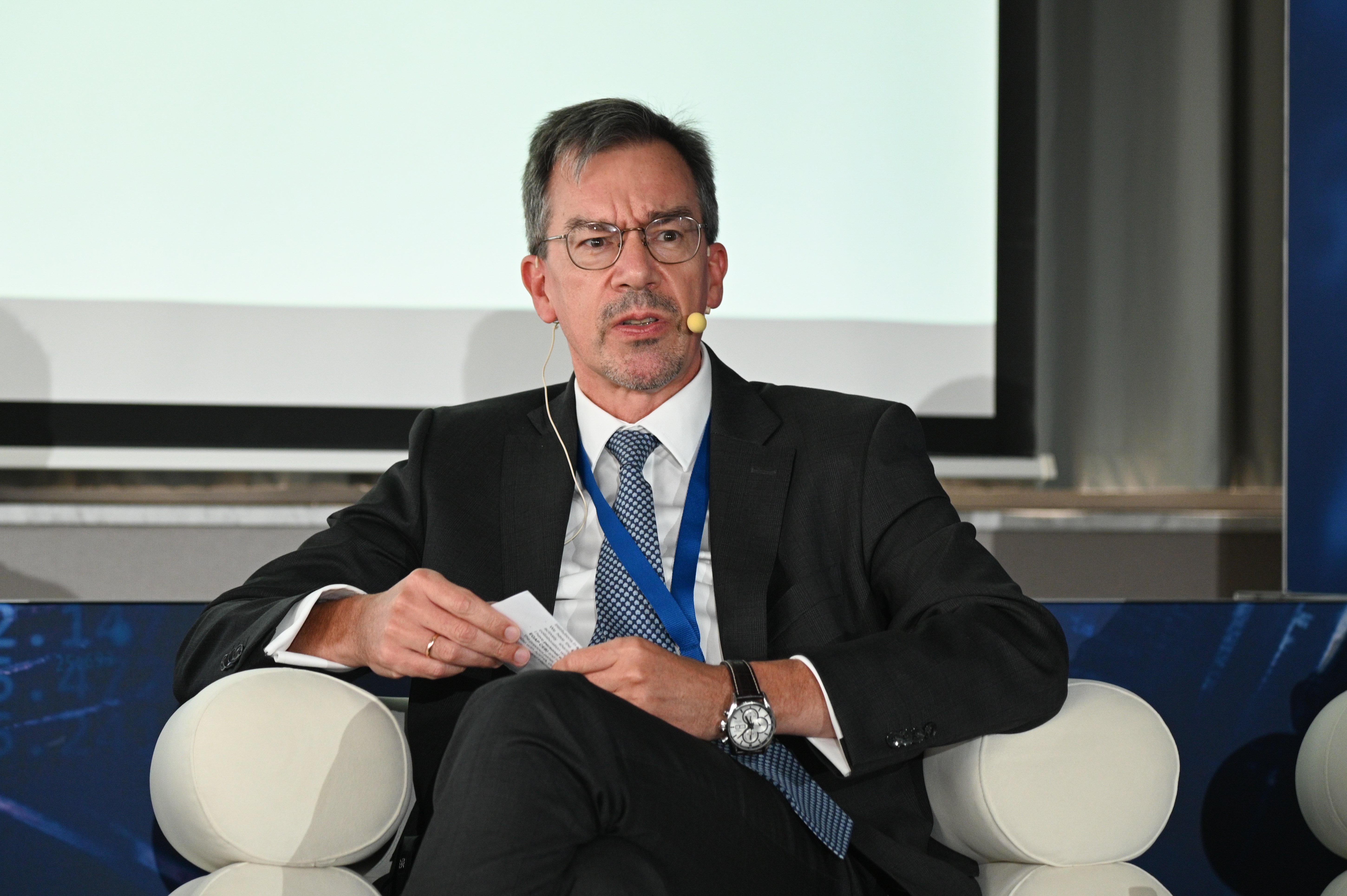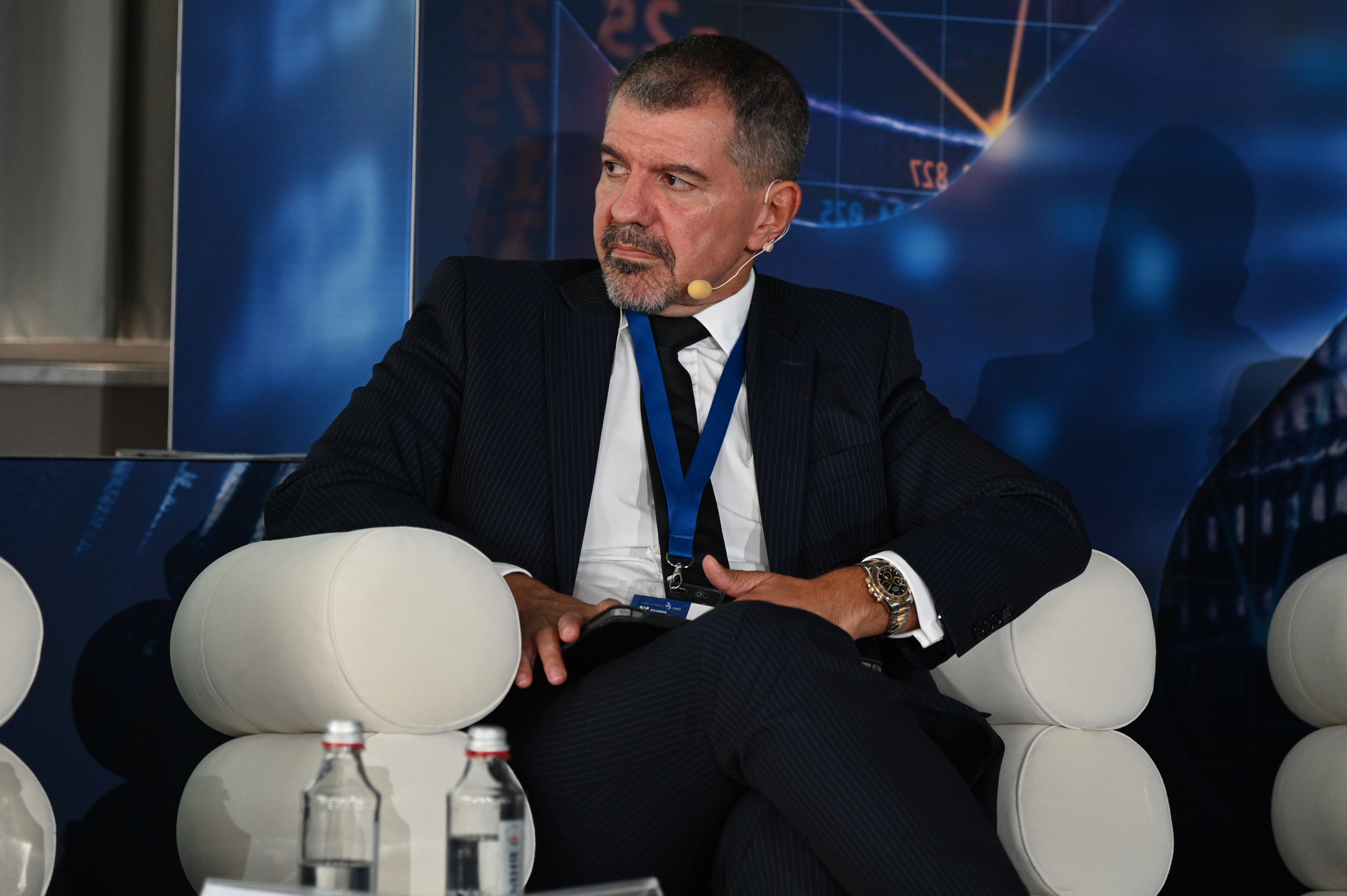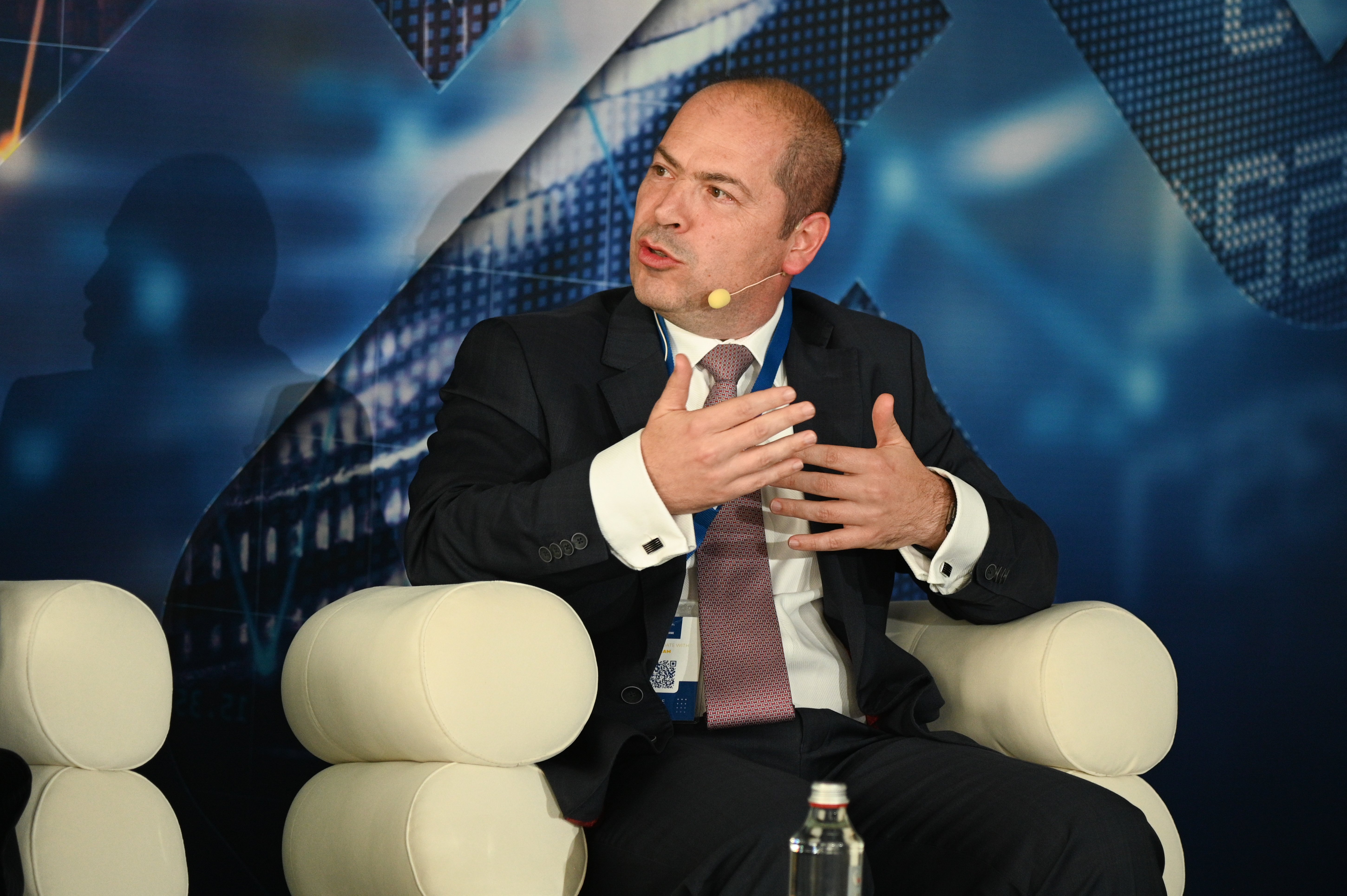
25 years a bank with a mission
The national promotional banks are gaining importance and recognition with their special impact on the economy in Europe and worldwide.
To congratulate BDB on its silver anniversary, leaders from the European Commission, EIB, EIF, high-level managers of promotional and export banks from 20 European countries, as well as CEOs of leading Bulgarian banks, gathered in Sofia.
"During its quarter-century history, BDB has established itself as a full-flegged member of the family of European development banks that support the economy and the society. This path is inspired by the best practices in Europe," said the Minister of Innovation and Growth Assoc. Prof. Dr. Rosen Karadimov in his opening speech of the forum.
He focused on the counter-cyclical role of development banks in critical situations. He also recalled the achievements of BDB over the years that made it
a reliable and competent partner of the European commission,
the EIB Group and the State in the implementation of special programs. "BDB has earned the trust of the banking sector and will work hard to achieve the goals set in the public policies at national and local levels," the Minister noted and wished the bank's team high results in the implementation of the new strategy 2024-2026.
The key role of BDB as an intermediary between the market and public funds was underlined by the main speakers of the event – the Deputy Minister of Finance Martin Danovski, the Deputy Governor in charge of the Banking Department and Member of the Governing Council of the Bulgarian National Bank Assoc. Prof. Dr. Petar Chobanov and the EIB Vice-President Kyriakos Kakouris.
The forum was valuable with the shared lessons, guidance and good examples provided. The Conference was moderated by Sophia Kassidova, Head of Strategic and Sustainable Development at BDB. She focused on the contribution of development banks, which are now over 550 on a global scale.
What makes them special and contributing to the better use of public funds, was discussed between Delyana Ivanova, Deputy Chairman of the Supervisory Board of BDB and Advisor to the Minister of Innovation and Growth, Antongiulio Marin, Head of InvestEU Implementation Unit at the European Commission, Pascal Lagarde, Executive director in Bpifrance, Josip Pavkovic, Board Member in HBOR - Croatia, Csaba Harsanyi, Director at MFB - Hungary and Timo Liuksila, Vice-President of Finnvera - Finland.
The panel was moderated by Marcel Roy, Secretary General of the European Association of Public Banks.
Delyana Ivanova emphasized that the BDB Group has managed to improve its transparency and governance, and that its new strategy shall convert it into a powerful tool for support of the small and medium-sized enterprises, for the implementation of the national policies and for addressing the regional inequalities.
The Bank will expand its activities
towards implementing government mandates and aiding the government in accomplishing its objectives, including in important sectors such as defense, industrialization, infrastructure, health, energy, etc.
"I wholeheartedly support BDB's strategy and its focus follows a proven working model that many promotional banks have. We serve a variety of needs and sectors in the interest of the state and taxpayers," said Marcel Roy.
Josip Pavkovic congratulated BDB on its anniversary and wished its cooperation with HBOR Croatia to continue for the next 25 years. He shared details of the promotional bank's partnership with the Croatian government. "If commercial banks are not interested in financing something, we intervene. We do a lot of work in the field of renewable energy. Banks and leasing companies are important to us. Croatia is developing very well and proof of this is that we are currently reporting the highest rating we have ever had," Pavkovic added.
EC’s representative Antongiulio Marin assured that the Commission is a stable partner and has the opportunity to support all the priorities of the national promotional institutions. "There is a need to simplify our administrative procedures, especially with the regard to support for SMEs. The Commission will need to fully implement its commitments in this area. It is important for us to work in the most efficient way with the portfolio given to us and for development banks to improve their capacity and to comply with the regulations to be more efficient," stated the Head of InvestEU Implementation Unit.
And how do others work?
Pascal Lagarde from Bpifrance described the advantages of the direct access to finance. His bank is looking for ideas for products to support innovative companies in the manufacturing sector.
"Most entrepreneurs in France want their production to be environmentally friendly but they do not know how to achieve it. The EC has helped us to combine funding with advisory services. This leads to a better result," Lagarde noted.
He also shared details of the French experience on reindustrialization. "For a long time, France was deindustrializing - it was a bit naive. Now we are trying to get back to our industry and increase its share. It's a big effort. Bpifrance had to meet the economic needs of the country, and this includes not only the funding. It has become strategic - across different sectors that are a priority for the government. This includes defense, which is a very interesting industry. We expect a higher level of defense production for all our citizens. The Ministry of Defense is trying to adapt conditions to remove obstacles," said the CEO of the French Development Bank.
"The sectoral approach is indeed better and more productive," added Delyana Ivanova.
"Reindustrialisation and defense are very important - they allow us to provide the necessary resources and to be sustainable. Defense is a sensitive issue for any bank, but it is essential for the economy of the states. We will support its development as well as export."
Timo Liuksila presented Finnvera's policy to assess niche markets in Finland with the aim of having greatest impact.
"Twice a year we do a survey of banks and financial conditions, and we receive up-to-date information on the development of the situation over time. Finland is small and it takes imagination to choose the best strategy. Our research shows that there is a demand for export finance from SMEs, so in the last year we have a lot of such examples. Cruise ships were also been built with our help," said the Vice president of the Finland Bank.
According to Csaba Harsanyi from MFB – Hungary, most promotional banks are established in response to crises. "This shows where this particular animal called 'development bank' falls," joked Harsanyi, "We focus on high-risk exposures. We have our revenue, which we generate, but also our risk assessment. Every 5 years, there is a modern word that we need to put into our work - now it is sustainability.
And politicians must allow us do what we were created to do", he commented. The Hungarian Development Bank has sufficient experience with companies in different sectors, especially those in which it is difficult to obtain funds.
The participants in the discussion agreed that the national development banks, alone or in cooperation with the EC, EIB and EIF, manage to achieve the most effective impact of the invested public funds.
In the second panel of the forum, a useful discussion was held on the interaction of different market instruments in support of the businesses in Bulgaria. The focus was placed on the
partnership between development and commercial banks.
The discussion was moderated by Iliya Karanikolov, Executive Director of the Bulgarian Development Bank.
The effect of establishing joint financial programs to stimulate the entrepreneurship was discussed with the CEO of Postbank - Petya Dimitrova, UniCredit Bulbank - Tsvetanka Mintcheva, KBC Group - Peter Roebben, DSK Bank - Boyan Stefov, and BACB - Ilian Georgiev.
"The synergy between development banks and commercial banks can be crucial in improving the access to finance for SMEs, in scaling up investment projects and for the sustainable development of the economy," said Iliya Karanikolov.
According to him, the role of development banks as a key instrument for stability is complemented by an effective and fruitful partnership with the commercial banks.
Karanikolov recalled the implementation of the first counter-cyclical measure with capital of nearly half a billion leva during the financial crisis in 2008, immediately after the adoption of the BDB Act.
Commercial banks with severely reduced lending to businesses, were given the opportunity to use 10-year financing at a minimum fixed interest rate in order to provide loans to SMEs at a minimum cost and at a fixed interest rate.
The measure had impact thanks to the participation of almost all banks operating in the market at the time, and it was continued through two other on-lending programs until 2012.
In the panel with the CEO of commercial banks were also shared joint initiatives, ideas, best practices and prospects for the future development of the partnership, which is critical for the financial stability and the economic growth in the country.

